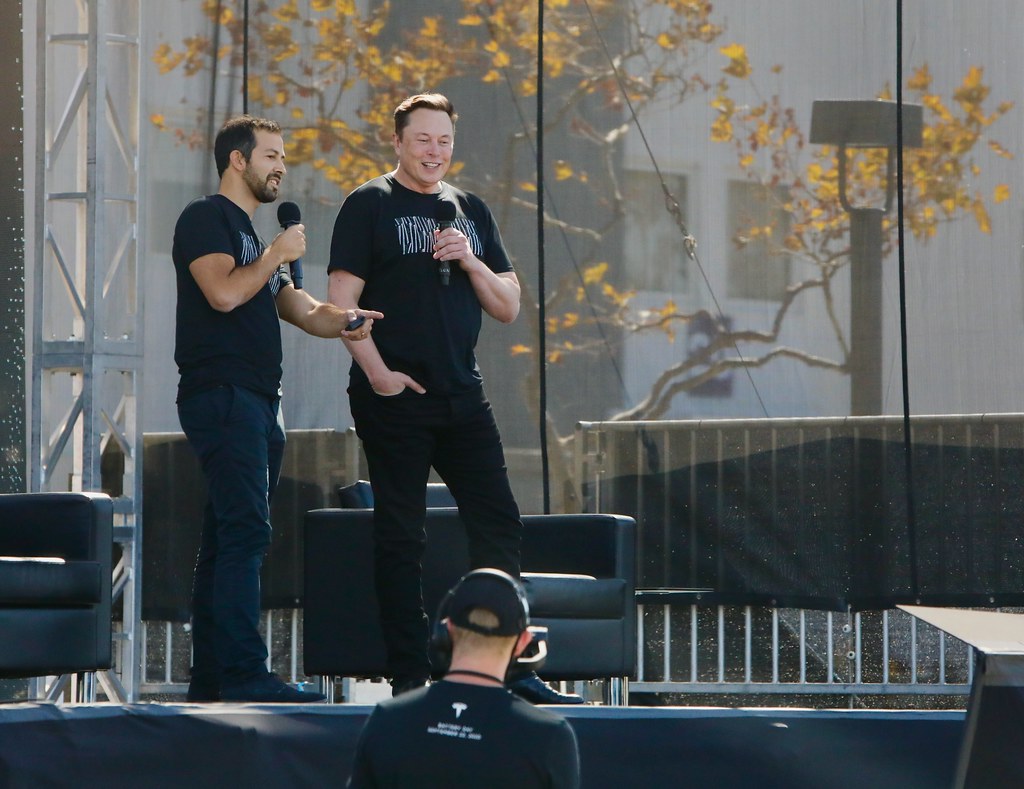The Supercharger network of Tesla has won over another convert.

Rivian Automotive RIVN 5.51%increase; green up pointing triangle announced on Tuesday that it has reached an agreement to expand access to Tesla’s fast-chargers for drivers of its vehicles, further solidifying Tesla’s dominance in the U.S. for owners seeking to charge their vehicles.
Using an adapter, Rivian R1T and R1S owners will have access to more than 12,000 Tesla Superchargers in the United States and Canada beginning in 2024. Beginning in 2025, future Rivian models will incorporate Tesla’s charging port configuration.
Rivian’s agreement follows similar agreements Tesla reached with Ford Motor and General Motors in recent weeks. Beginning in 2025, both manufacturers will install Tesla-style charging ports on future EVs, and their customers will have access to approximately 12,000 Superchargers.
As automakers move promptly to adopt the Tesla connector, the already confusing landscape of EV charging in the United States will likely become even more so. Since Ford became the first automaker to announce plans to make the transition last month, a slew of charging companies and equipment manufacturers have stated their ability to support Tesla’s charging system.
According to some analysts, the adoption of the Tesla connector by manufacturers and the expansion of Supercharger access to non-Tesla owners is a mixed bag for consumers. On the one hand, many EV owners would benefit from an immediate expansion of fast-charger access.

However, the majority of chargers currently in use at U.S. stations use a separate charging system. EV infrastructure expert Eleftheria Kontou, an assistant professor at the University of Illinois who studies EV infrastructure, said that the industry could be further pushed away from a universal charging standard, which some policymakers believe is the best way to promote EV adoption and reduce confusion.
CCS, or the Combined Charging System, is the charging standard used by almost all non-Tesla manufacturers today. The federal government of the United States, which has committed billions of dollars to the expansion of the nation’s transportation system, supports CCS. Europe utilizes a comparable CCS standard. The majority of U.S. automobile manufacturers rely on a network of third-party charging providers, such as EVgo and ChargePoint.
NACS, or the North American Charging Standard, is a distinct connector utilized by Tesla. According to a U.S. Department of Energy database, Tesla’s Supercharger network comprises more than 19,400 fast-chargers at nearly 1,800 locations in the United States and is widely regarded as the most reliable.
While Tesla drivers can purchase adapters that enable them to use CCS fast chargers, an adapter that allows a CCS driver to connect to a Tesla charger is not currently available.
Cathy Zoi, CEO of fast-charging provider EVgo, stated that approximately one million electric vehicles on U.S. roads are equipped with CCS connectors, with more on the way. She stated that the company already has Tesla connectors and CCS connectors at many of its facilities.
Zoi stated that there will continue to be a significant demand for CCS charging. Even if every [automaker] decided to adopt NACS tomorrow, it would take years for that to become a reality.
Stellantis, a manufacturer of Jeeps, stated on Tuesday that it is evaluating Tesla’s charging standard. Toyota, Honda, Nissan, and Hyundai have stated that they are investigating future charging options.

Rivian stated that it would continue to expand its own network of charging stations, the majority of which are located in or near outdoor destinations like state and national parks. Currently, these stations are CCS compatible. Rivian will transition to Tesla’s charging hardware for future stations, the company said.
Tuesday afternoon, Rivian’s stock rose approximately 5%. Tesla stock was up 3.4%.
While the majority of EV charging occurs at home, the anxiety associated with EV road trips is preventing widespread adoption, according to analysts. According to a recent J.D. Power study, nearly half of car buyers who will not contemplate an electric vehicle cite the lack of charging stations as the primary reason.
Outside of the Tesla network, reliability has been problematic, with equipment frequently malfunctioning. Studies have identified communication failures between the vehicle and the charger, between the charger and the company operating the charging network, and with payment systems.
Part of Tesla’s advantage in terms of dependability is that it only charges its own vehicles, which simplifies the communication between the charger and EV.
“How well does it work from a performance standpoint?” Nick Nigro, founder of the EV research firm Atlas Public Policy, was questioned. “Drivers will pay close attention because they will anticipate this extraordinary experience.”
The United States is attempting to establish a network of fast chargers capable of recharging electric vehicles within 30 minutes. The federal infrastructure law enacted in 2021 allots $7,5 billion to jumpstart the construction.
Tesla’s charging agreements coincide with the Biden administration’s request that the automaker make its Supercharging network accessible to non-Tesla EV owners in order to qualify for future federal funding.
An influx of new consumers to Tesla’s charging stations will likely increase the company’s revenue. However, expanding access to non-Tesla customers undermines a longstanding competitive advantage and selling point for Tesla purchasers.

Drew Baglino, Tesla’s senior vice president of powertrain and energy engineering, said in April that Tesla was able to open half of its fast-charging stations to other electric vehicles in Europe without increasing wait times.
Prices for charging at Tesla stations differ by location and can be viewed in the automaker’s app.
According to the company, pricing for non-Tesla drivers reflects the additional costs associated with its network expansion. These motorists can pay $12.99 per month for a membership that reduces the price per kilowatt-hour.
At a station outside of Santa Cruz, California, for instance, Tesla charges non-members 53 cents per kilowatt-hour and members 43 cents per kilowatt-hour.
Elon Musk characterized last week’s decision by Tesla to expand network access as “morally right.”
However, it remains to be seen if it is financially prudent.

